The CBD Expert Series: Q&A with a National Leader in Cannabis Research
Recently, Nick Musica of CBD Oil Review had the privilege of speaking with one of the most influential figures in cannabis research, Dr. Igor Grant. Dr. Grant is the Director of the Center for Medicinal Cannabis Research (CMCR) at the University of California, San Diego, as well as a Distinguished Professor in the Department of Psychiatry.
Current CMCR studies are examining the effects of cannabis, and cannabidiol (CBD) specifically, on conditions like autism, psychosis, bipolar disorder, and pain, to name a few.
There is, quite possibly, no one who understands the benefits and effects of CBD better than Dr. Grant. Meet the researcher behind the research.
Nick Musica (CBD Oil Review): From a historical perspective and your research, how would you describe the benefits of CBD?
Dr. Igor Grant (Center for Medicinal Cannabis Research): Well, first of all, we don't know all of those yet, but there are some pretty good data emerging in a couple of areas.
One of them has to do, of course, with the antiepileptic effects of cannabidiol. Even recently the drug Epidiolex, which is a GW Pharmaceuticals product that contains primarily CBD, was approved for the treatment of some rare epilepsies in children: epilepsies called Dravet, and Lennox-Gastaut epilepsies. And these were very difficult-to-treat epilepsies where CBD seemed to have some benefit. And indeed it has been shown to be helpful.
So, I think the next stage of this aspect of the research will be to see whether maybe other more common forms of epilepsy, not just of children but of adults, might also be benefited by CBD. So that's one area.
Are there any other areas that you would classify as promising in terms of CBD usage?
Yes. So, CBD also is known to have some effect on reducing anxiety. And that's been shown through some smaller scale studies, primarily in Europe and Brazil, and there are studies ongoing now in this country as well.
I think it’s quite likely that we will find that, for some forms of anxiety, which may range from things like public speaking anxiety to more complicated forms of anxiety, like post-traumatic stress disorder, that CBD may be a component that is is useful. So I think there's very likely to be progress in the area of anxiety.
Also, sticking with the psychiatric indications, there is some evidence that CBD may be an antipsychotic agent. This means that people who develop a serious mental illness like schizophrenia might benefit from cannabidiol. Again, those data are just getting generated, they’re preliminary observations.
So I don't want anybody to think, “Oh yes, now I should treat or give a schizophrenic relative or a child lot of CBD right away,” but I think this may be another promising area.
Are there any non-psychiatric issues where CBD might hold promise?
I think it’s quite likely that we will find that, for some forms of anxiety, which may range from things like public speaking anxiety to more complicated forms of anxiety, like post-traumatic stress disorder, that CBD may be a component that is is useful. The other areas I think that are possible relate to the anti-inflammatory actions of CBD. We know that CBD lessens inflammation. What do we mean by inflammation? For example, conditions like rheumatoid arthritis and painful joint diseases are caused when the joints swell up. And although we don't know all the reasons for that inflammatory pain, it may be that CBD could be helpful in a condition like that.
Or it may be another condition that's related to inflammation in the bowel. So diseases like Crohn's disease. Again, I'm mentioning these as possibilities, not as areas that have been at all established. I just want people to understand that.
Do you have any recommendations on how someone can start exploring CBD to see if it could be beneficial for whatever they're going through?
In those jurisdictions and states that have medical marijuana laws, there are physicians that are becoming more expert in the recommendation of these cannabinoids, both THC containing products and CBD. So I think working with physicians who have that familiarity would be a very good thing.
The other, is there are increasing numbers of research protocols that people can enroll in, where people are actually doing formal studies, comparing, for example, CBD with some traditional treatment and seeing if it works as well or better as a traditional treatment. So that would be another way to do it.
I think it's important that people keep abreast of the scientific literature, and not just the hype in the blogosphere, if I may put it that way. Because there are a lot of claims being made which may not pan out. At the same time, anecdotal observations, which means everyday life observations by ordinary people, may be clues to real effects as well. So this has to be that balance I think with consumers.
What do you think about people who see CBD as panacea, or a “cure-all”?
Well, some people see cannabis, not just CBD, but cannabis in totality as panacea, like you say. And others see it as poison. And neither is true.
I like to say, let's clear the smoke on this thing and let's get into the light. Let's see what the truth is.
And I think the truth is that the cannabinoids, not just CBD, but THC and potentially some of the other cannabinoids will have medical benefit. Are they going to cure everything? No, of course not. Are they going to be perfectly safe? Of course not. There's no chemical that's perfectly safe.
So it's always a trade off between some beneficial property of a substance and some toxic effect that could happen, either because you're vulnerable, or you take too much of it, or take too much of it in combination with something else, and so forth.
As a cannabis researcher, what are some of your biggest challenges?
Well, I think one of the challenges, of course, is that there are currently conflicts between many state laws and federal law. For example, at the University of California, which is where I work, at UC San Diego, we have a Center for Medicinal Cannabis Research. We also live in a state that has legalized marijuana, not just medical, but totally.

Since 2000, the Center for Medicinal Cannabis Research at UCSD has been a national leader in conducting clinical trials to investigate the benefits of cannabis.
So we have patients who may be able to go to a local dispensary and pick up a bunch of stuff. But if they bring it into us and say, “Well doctor, can you confirm, for example, just the content of what's in there. It says it's got this amount of CBD or this amount of THC. Can we just confirm it?” I actually can't take that product legally from a federal standpoint because that is seen as a contravention of our narcotics laws.
That's a problem right there, that people can't get accurate information, necessarily. Well, some people see cannabis, not just CBD, but cannabis in totality as panacea, like you say. And others see it as poison. And neither is true.
Another problem is that in order to do research with medicinal cannabis, again, there are very few truly legal sources. One of them is the federal government itself. It has a farm at the University of Mississippi where they grow marijuana for medical research purposes. And that's fine. A lot of our projects have utilized those products. But I think that supplier has difficulty keeping up with the trends in cannabis that's available to people on the street—not on the street, but in real life.
What sort of real life cannabis trends come to mind?
So for example, people are using products with very different strengths, either cannabidiol or THC, than might be readily available from the federal provider. Or, they may be using it in a form that is not available from the federal provider. For example, some kind of thing you rub on your skin or take by mouth or a tincture and so forth.
And these things all matter. It matters how you ingest the cannabis, whether you're inhaling it, whether you're taking it by mouth, whether you're doing it sublingually [under the tongue]. All of these things have effects on how the drugs are processed in our body.
So these are some limitations that we have at the moment. Now, I don't mean to say research can't be done, obviously it can, but it's a bit of a cumbersome process at the moment.
So, in terms of delivery methods, which you were just touching on, do you have a perspective on which delivery methods are “best” for people?
No, that's not a question that could be answered in a very straightforward way. What I can tell you is that in terms of delivering, say THC or CBD, into your body, into your bloodstream, inhalation is the most efficient form.
What do I mean by efficient? I mean if you take it by inhalation and then I measure the amount of THC that’s in your blood, it goes up very quickly if you do the inhalational method. And then it goes fairly quickly out of your blood.
If you take it by mouth, it takes time, and there are new variables that come in. One, is not everybody absorbs these cannabinoids at the same rate, so it depends a little bit on your own biology and your own microbiome for that matter, the bugs that are in your gut.
Once it gets into your body, things go from the gut to the liver. The liver loves to toss out things that it doesn't think you should have. It's kind of the sanitation plant or purification system. So a lot of things get metabolized, or altered chemically, so that they're no longer active before they get into your bloodstream.
The third thing about the oral route is that it takes time to have that absorption. Some people may feel the effects of something taken by mouth in a half hour; other people may not feel it for an hour or so. If they don't feel it for an hour or so, they might say, “Oh, well maybe I should take more.” So they do, but then by the time it's all absorbed, they get the really serious effects again.
It's more difficult to do what we call auto-titration, which is balancing how much should I take in terms of what kind of effect do I need to get. As far as other absorption methods, sublingual probably works. There's not a lot of research on that.
As far as dabbing it on your skin, for example, let's say you have a painful joint or something like that, I just don't know. Maybe somebody else has data on whether there is a lot of absorption through that route. So, these are all questions that still need to be answered.
When you say “inhalation,” are you talking about smoking or are you talking about vaping?
Both. So if you are taking it in as some kind of vapor in your lung, you get it into your body very quickly is all I was saying. Whereas if you take it by mouth, it takes this more circuitous path.
What is the one thing you want people to know about cannabis?
I guess I would say, buyer beware. There may be very good products out there. They may be helpful, but until we really have the data, I think there can be risks of complications, on the one hand, from getting too much of something, or having something that has adulterants in it. Or, on the other hand, there might not be enough of it to really have the effect that you need.
So for example, if you're using CBD to help you sleep, if you take a tiny amount, it may not do anything other than give you the placebo effect, in which case, maybe that's fine too, that you sleep better just because you're thinking you're getting something good. But it may also be the case that you're just not getting enough of it in order to really have the effect.
So I think people should be very informed consumers and keep in touch with the emerging science of the cannabinoids. I think it's going to be an exciting time in this area.
So I think people should be very informed consumers and keep in touch with the emerging science of the cannabinoids. I think it's going to be an exciting time in this area.
I think so too. What are you, yourself, looking forward to in terms of research over the next five years?
Well, I'm hoping that we'll be able to conduct some of the studies that I was mentioning, particularly in some of these difficult-to treat-conditions like schizophrenia, for example, where we do have medicines that work, but they have lots of side effects. People don't tolerate them that well.
If we could find something that is safer and also effective that people can take, that would be a great thing. If we could find something that could be helpful with post-traumatic stress disorder, that would be a wonderful step forward. So these are just a couple of examples where I think there's some good options.
More Expert Series Interviews
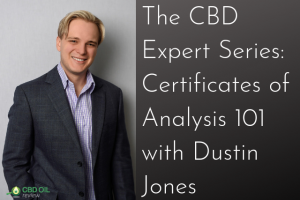
The CBD Expert Series: Jackie Bowen on Mislabeled & Misleading CBD Oil
Read More
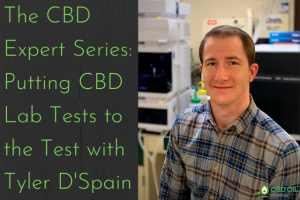
The CBD Expert Series: Putting CBD Lab Tests to the Test with Tyler D'Spain
Read More
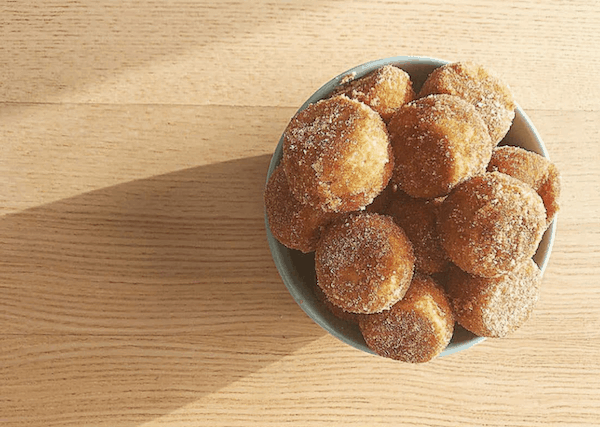
MasterChef Nick Nappi's CBD Apple Cider Donut Hole Recipe
Read More
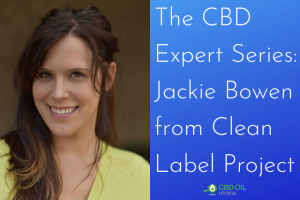
The CBD Expert Series: Jackie Bowen from Clean Label Project
Read More

The CBD Expert Series: Certificates of Analysis 101 with Dustin Jones
Read More
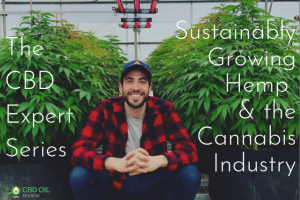
The CBD Expert Series: Sustainably Growing Hemp & the Cannabis Industry
Read More
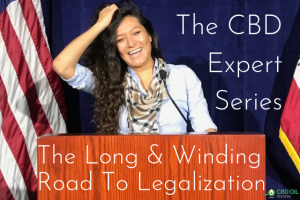
The CBD Expert Series: The Long & Winding Road To Legalization
Read More
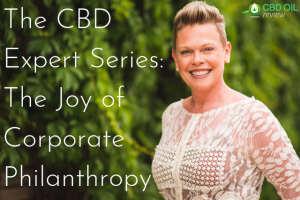
The CBD Expert Series: The Joy of Corporate Philanthropy
Read More
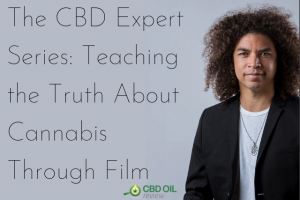
The CBD Expert Series: Teaching the Truth About Cannabis Through Film
Read More
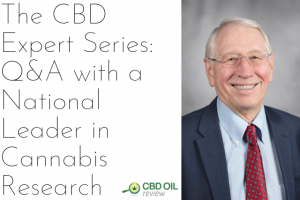
The CBD Expert Series: Q&A with a National Leader in Cannabis Research
Read More
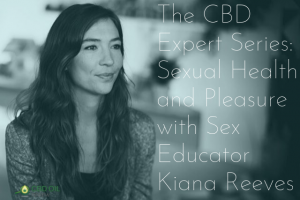
The CBD Expert Series: Sexual Health and Pleasure with Sex Educator Kiana Reeves
Read More
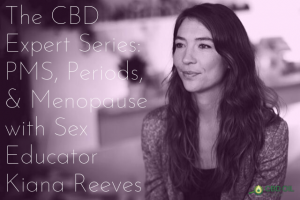
The CBD Expert Series: PMS, Periods, & Menopause with Sex Educator Kiana Reeves
Read More
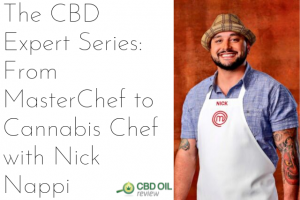
The CBD Expert Series: From Masterchef to Cannabis Chef with Nick Nappi
Read More
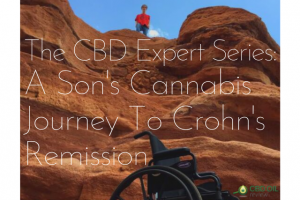
The CBD Expert Series: A Son's Cannabis Journey To Crohn's Remission
Read More
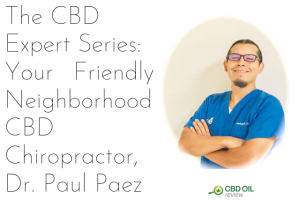
The CBD Expert Series: Your Friendly Neighborhood CBD Chiropractor, Dr. Paul Paez
Read More
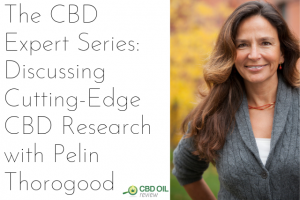
The CBD Expert Series: Discussing Cutting-Edge CBD Research with Pelin Thorogood
Read More
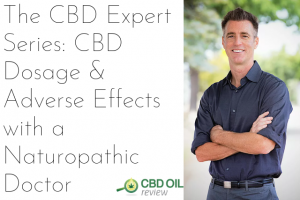
The CBD Expert Series: CBD Dosage & Adverse Effects with a Naturopathic Doctor
Read More

The CBD Expert Series: Talking Drug Tests with a Lab Tech
Read More
Opinions expressed in this article are those of our guest (the interviewee) and not necessarily of CBD Oil Review.
6 Smart Questions to Ask BEFORE You Buy CBD
Get the Ultimate CBD Buyer’s Guide and you won’t look at CBD the same way again!



 search
search